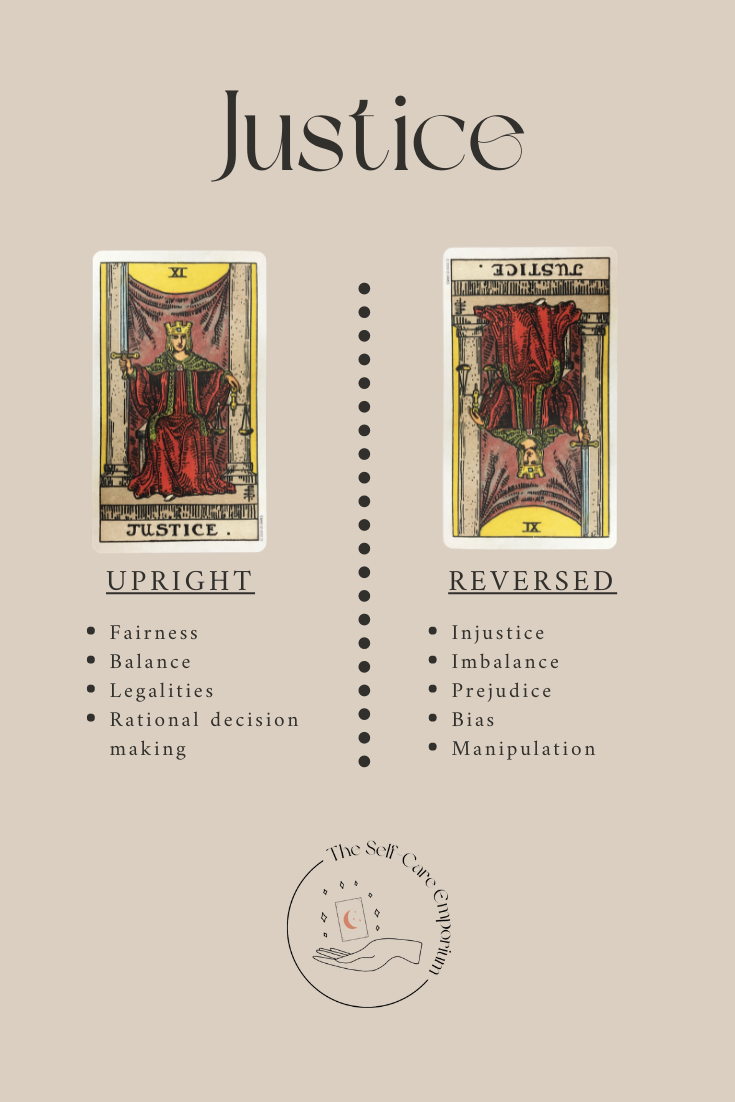The Justice tarot card, when encountered in its reversed position, assumes a complexity that can provoke thought and introspection. In the Christian context, this card takes on even deeper implications, transcending its traditional association with fairness and balance. The reversed Justice card raises questions about morality, ethical dilemmas, and the often intricate nature of divine justice.
One common observation regarding the reversed Justice card is its alignment with a sense of imbalance or injustice. In many Christian teachings, justice is often equated with righteousness and the adherence to God’s laws. However, when this card appears reversed, it may symbolize a deviation from these values. This deviation does not merely denote an absence of justice; rather, it can hint at the inner turmoil experienced when one grapples with ethical conflicts that seem to contradict Biblical teachings.
For instance, an individual may find themselves in a scenario where they must make a choice that could lead to moral ambiguity. This is not uncommon in a world that frequently blurs the lines between right and wrong. The reversed Justice card can reflect feelings of guilt or regret for choices made or actions taken. Such feelings resonate with biblical stories where individuals faced trials and tribulations after straying from God’s commandments. The concept of free will, a significant tenet in Christian doctrine, underscores that even with divine guidance, humans often navigate treacherous moral waters.
Additionally, the reversed position may suggest a lack of accountability. In a Christian framework, there is a strong emphasis on personal responsibility. The Gospel imparts the necessity of confession and repentance as pathways to regain favor in the eyes of the Lord. Thus, the reversed Justice card could signify an avoidance of these principles. It invites a contemplative dialogue on the consequences of neglecting one’s spiritual obligations. This avoidance may also reflect a cultural phenomenon where individuals justify their actions through societal norms rather than adhering to scriptural truths.
The fascination with the reversed Justice card lies not only in its implications of wrongdoing but also in its potential for transformation. Within the Christian context, there exists hope, even in adversity. The opportunity for redemption has been prominently featured throughout biblical narratives, such as the parable of the Prodigal Son. The reversal of Justice can symbolize an awakening; a moment where one recognizes the need to realign their decisions with their inherent moral compass. It’s a reminder that acknowledgment of flaws can lead to spiritual growth—a premise deeply woven into the fabric of Christianity.
Moreover, the card may serve as a metaphor for societal injustices. The Christian faith advocates for the marginalized and oppressed, promoting the idea of justice as a communal obligation rather than a solitary endeavor. This perspective encourages believers to ponder larger systemic issues—such as poverty, discrimination, and inequality. When the Justice card is reversed, it can prompt a call to action, urging individuals not only to reflect upon their own shortcomings but also to consider broader ethical implications. It raises critical questions about societal norms and their alignment with Christian teachings.
Yet, despite the potential for negativity associated with this card’s reversal, there is strength in vulnerability. The Christian doctrine often emphasizes the idea that through trials and tribulations, greater wisdom and resilience can be cultivated. The reversed Justice card can represent the tumultuous journey of moral exploration, where every misstep serves a purpose in divine teaching. It reflects the complex dance between divine justice and human fallibility, a theme pervasive in scripture.
Furthermore, the role of discernment cannot be overlooked. Reversed Justice invites a deeper analysis of intentions and motivations. Believers are encouraged to seek wisdom and guidance through prayer and reflection. The act of introspection, accentuated by the card’s imagery, can lead to revelations that restore clarity and alignment with God’s principles. In this way, the reversed card, rather than being a mere omen of despair, can herald a profound opportunity for spiritual awakening.
In summary, the Justice tarot card, when presented in its reversed form, encapsulates a myriad of themes from a Christian perspective. It addresses imbalances of justice, personal accountability, societal issues, and the journey toward redemption. The intricate layers of its meaning beckon individuals to reflect deeply upon their moral landscapes. Beyond the surface-level implications of injustice and imbalance lies an invitation to explore the profound intricacies of divine justice, personal growth, and ethical responsibility.
Ultimately, the fascination with the reversed Justice card persists as it holds a mirror to our spiritual struggles and triumphs. It resonates with the belief that even in our darkest moments, there exists the possibility for enlightenment and transformation. This card emphatically underscores the notion that justice is not a static state but a dynamic pursuit that encompasses the entire human experience.







Leave a Comment